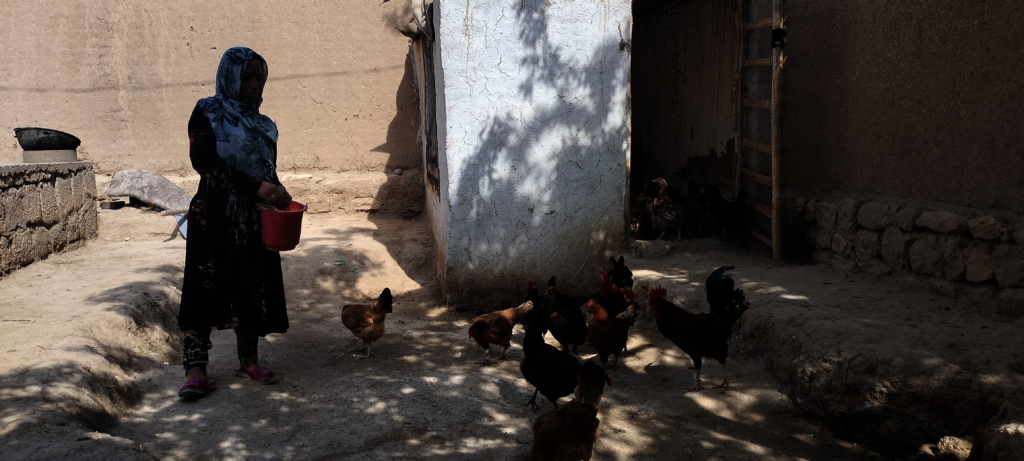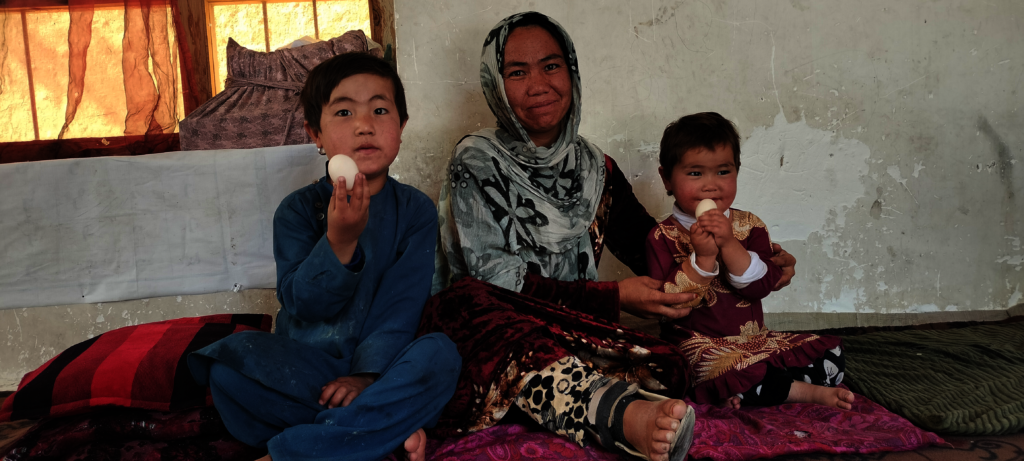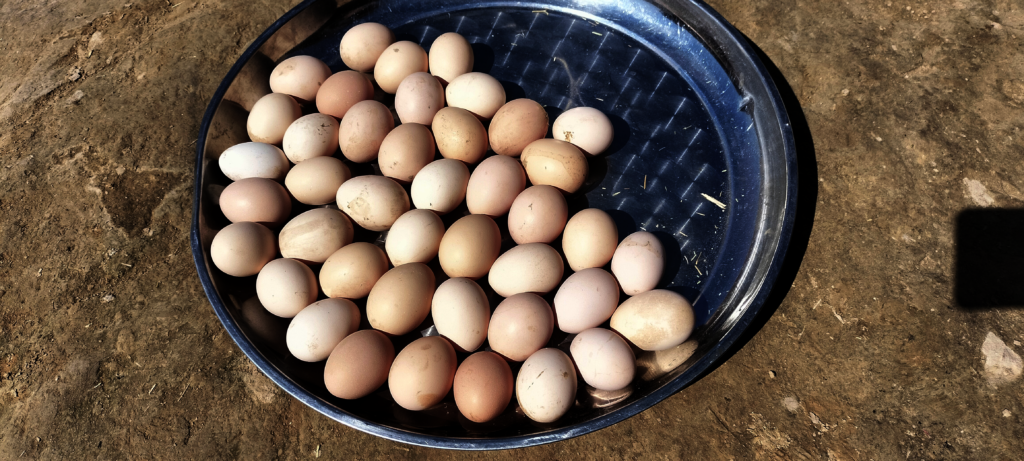By Josephine Edmunds | Donor Engagement Coordinator
As the first 6 months of 2023 draw to a close, Afghanistan continues to be one of the toughest countries in the world to be a woman.
Women’s freedoms have become increasingly restricted over the past two years, with new limits on access to education, on seeking employment and their ability to travel all limiting their full engagement in public life.
In a country where 97% of the population are at risk of poverty, a problem arises when women are limited in their ability to find employment. It puts pressure on the males in families to bring home the wages, increasingly pushing families into debt and insecurity. Enabling women to fulfil their potential and to earn a living to support themselves and their families is vital to ensure vulnerable families can stay afloat.
Take Khawar, who was paralysed in one leg as a result of a childhood accident. Khawar knows the struggle of finding suitable employment whilst supporting a family only too well: because of their sole reliance on her husband’s income to pay the bills, her family often found themselves without electricity, with not enough money to buy food or to make ends meet. “We used to spend the nights in the dark. It was with great difficulty that the house rent and electricity bill was paid by my husband through his daily wage work.”
When Afghanaid visited Khawar’s village, she took control of her and her family’s life by identifying herself as requiring assistance. She enrolled onto Afghanaid’s project supporting women and men to earn an income through poultry farming. Agriculture and livestock farming are Afghanistan’s most important source of food and income, with an estimated 80% of the population working in this sector. By supporting those whose contributions to their household had been previously overlooked to access training and resources that maximise their earning potential, we can support households dependent on rural livelihoods to become more productive and secure.
“I have received about 20 chickens, two chicken feeders and two drinkers from the Afghanaid and also I have received training in poultry farming.” Khawar was taught how to properly care for her chickens and was supported to form links to sell her produce at the local market. Alongside generating much needed income for her family, Khawar’s successful business will also enable her to gain greater control over decisions in her household and community to help improve their living conditions further. “Now I understand that living with a disability does not prevent improvement in my life. I can bring my poultry products to some of the big markets and earn more money.”
This support is vital to ensure Khawar‘s family can begin to work their way out of poverty. Thanks to your support, in 2023 we’ve helped many more women and people with disabilities in a similar position to Khawar, such as by distributing livestock, animal feed and deworming tablets to over 15,000 vulnerable rural families this year. "I want to thank the Afghanaid once again and I hope that this program will continue in the future to support other families like mine.”
Please continue to generously support our work so that we can enable more women to fulfil their potentials to envisage a brighter future for themselves, their households and their communities.
*Please note, we have changed her name to protect her privacy
Project reports on GlobalGiving are posted directly to globalgiving.org by Project Leaders as they are completed, generally every 3-4 months. To protect the integrity of these documents, GlobalGiving does not alter them; therefore you may find some language or formatting issues.
If you donate to this project or have donated to this project, you can receive an email when this project posts a report. You can also subscribe for reports without donating.


